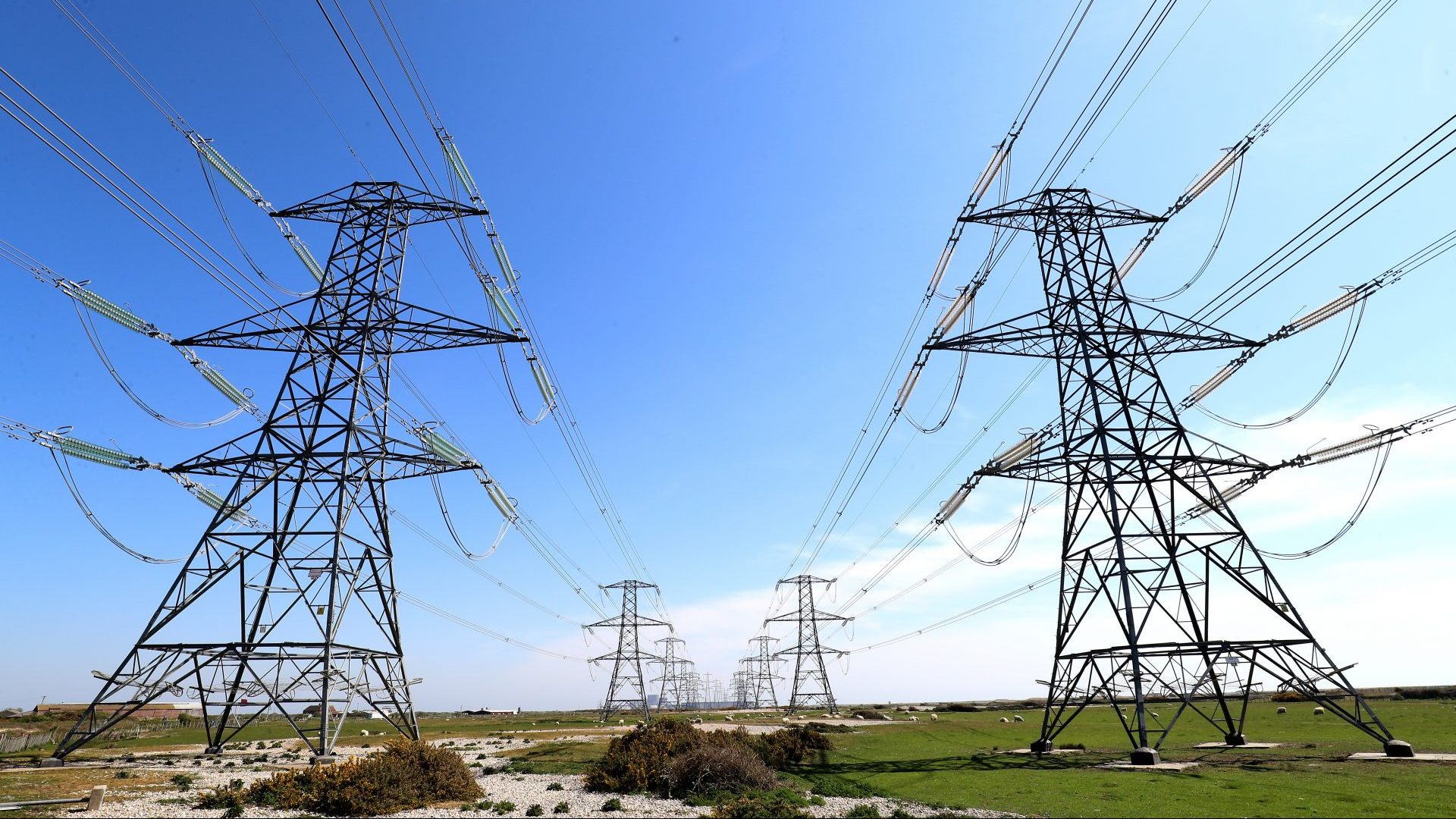I cannot agree with Paul Mason’s rejection of the relevance and applicability of free-market economics to gas and other prices (“The market cannot control energy prices, so we must control energy”, TNE #279).
Provided you look out for possible market failures and deal with them suitably, free-market economics is a matter of common sense, not ideology. Adam Smith was no ideologue, but an analyst explaining what happens in the real world. Milton Friedman and the Chicago School were broadly right in what they said, but they took far too little account of actual market failures.
Andrew Bailey of the Bank of England expressed himself badly and insensitively in the way he said workers should not demand big wage rises to compensate for the high gas price, but he was perfectly correct in making the point. If the price of a vital commodity that we have no option but to continue using is fixed globally, and rises substantially, paying everybody enough extra to compensate for the rise is economic madness.
If we must, as a nation, spend more on gas, then we must collectively spend less on other things. If those who are financially most vulnerable need support, then they must get it from the less vulnerable through taxation. Politicians who funk doing that and resort to printing money instead only prolong and exacerbate the crisis.
Longer term, we must of course move to renewable energy as soon as practicable, using gas prices as an economic incentive to promote it. Certainly not in the way suggested by Paul Mason.
Richard Burnett-Hall
London W11
Energy is a matter of national security. Nations go to war over energy. The only solution is to nationalise energy and ensure government manages the energy as they do wages, house prices, and anything else they can control.
Laurence Johnson
Via Facebook
This crisis is the direct result of governments over the last 30+ years neglecting investment in energy production. We should have built more nuclear plants and tidal barriers.
Wind and solar are excellent additions to the grid, but they are not reliable energy sources. We should have built tidal barriers in the Bristol Channel and The Wash. Reliable and predictable sources of energy production. This should have been backed up by new nuclear plants.
Mick Stafford
Via Facebook
France have capped their power price at 4%; other EU countries, the same or less. Our MPs have capped ours at 54%. Too many MPs sit on company boards, putting business first and us last.
Tom Anderson
Via Facebook
Why would you buy a load of carbon-based energy assets by taking the energy producers into public ownership?
Wouldn’t it be better to set up a publicly owned “British Energy” company from scratch to supply low-carbon energy and use the cash you would give to shareholders of BP to build a new energy infrastructure?
Frank Roche
Via Facebook
Benefits are in doubt
In “Our grim road ahead” (TNE #279), Jonty Bloom explains how claims made in the government’s recent Benefits of Brexit document do not stand up to scrutiny. The Tories will come to rue publishing this, as it provides a document against which the benefits claimed for Brexit can be judged and, over time, they will prove to be even more spurious than they are now.
The ultra-Brexiteers do look to be succeeding in turning Britain into another Singapore agriculturally. Singapore is a country with few farms and there is a real risk that our government’s free trade agreements, approved and planned, will drive British farmers out of business by undercutting them with cheap food from abroad that doesn’t meet our higher standards of production.
Roger Hinds
Surrey
The main Brexit benefits are being felt by those with tax-free, offshore bank accounts…
Mike Wood
Via Facebook
Nasty party
Re: Steve Richards’ “Torn-Apart Tories” (TNE #279). Margaret Thatcher “not only changed her party”, she changed the UK and not for the better. “Thatcher’s Britain” was a truly awful place and period. The good bits had little or nothing to do with Mrs T.
And yet The Lady still casts her shadow over the Tories of the 21st century. You see it in Priti Patel’s hard-faced posturing and the obsession with small-state, free-market ideology.
I couldn’t care less about the internal machinations or “challenges” of the Tories. Under Boris Johnson they seem determined to make British democracy a facsimile of the real thing.
Will Goble
Rayleigh, Essex
Razor sharp
Re: Nigel Warburton (Everyday Politics: “Metaphors”, TNE #279) , I think Occam’s razor is a fundamental principle, not a rule of thumb.
Take theories a, b, c etc, listed in ascending order of complexity (all consistent with all relevant measurements and observations). Without the razor all would be scientifically “true”. The razor makes only “a” scientifically “true”. The onus is on the advocates of “b” upwards to make measurements and observations not explained by “a”.
For example, given the freedom to add limitless complexity, a flat Earth theory could be constructed that would be as scientifically “true” as a spherical Earth theory. Flat Earth theories, however, spiral into complexity as they try to account for why Earth is the only flat planet, appears spherical from space etc.
Conspiracy theories, fairies and aliens fail a different principle, ie that extraordinary claims require extraordinary proof.
PE Basford
Herts
Carrie on?
I understand the rationale for leaving the prime minister in power for as long as possible to reduce the already damaged Tory and Johnson brands to rubble (“Johnson staying as PM is best outcome for Labour”, Letters, TNE #278), but do we not have more concern about the further damage he and his disciples will inflict on us in the meantime?
Is leaving a lying, self-serving, arrogant obfuscator with not a single shred of integrity in power for any longer really what we want for our country and our democracy? For how much longer can we afford to be an international laughing stock?
The “let him stay” argument also runs the risk of allowing him time to announce further rafts of populist measures – all of which will be constantly repeated, but few if any of which will ever actually be implemented – designed to restore his popularity. That will then quickly feed through to his equally self-serving MPs who know which side their bread is buttered.
After all, he has deluded a majority of the people on several occasions, so there’s no reason to suppose he won’t be able to do it again. Johnson needs to be removed as quickly as possible.
Phil Green
The best option is for a steady drip of letters to go in, but not too fast to keep all the high-intensity instability, then for Johnson to win the confidence vote and Tories to be stuck with a liability for at least a year.
Kevin Norris
Fatal decision
“The 27” (TNE #278) was an important article that reminded us that the victims of the November tragedy in the Channel were real people with individual life stories, not just amorphous “migrants”.
But I disagreed when it said delays in visa processing were “forcing” Maryam Amin, the first victim named, to try her luck with people smugglers as it was “the only alternative left”. Seeking asylum elsewhere was one alternative, as was being patient with her visa application.
Ask anyone who has had to deal with the Home Office and it is always a gruelling process. I applied for residency for my South American wife and we had to wait many months, a wait exacerbated by the lockdown, which caused us much angst.
But our application was eventually approved and given that Maryam Amin’s fiance was a British citizen like me, I do not see why she would have been refused entry. Alas, the article did not go into detail about her official attempts to enter the UK.
As regards asylum, it is absurd it cannot be applied for overseas at British consulates. I agree that this can impel some to attempt life-threatening journeys if this is their land of choice. But choice is not coercion.
Sean O’Conor
Surrey
Sad state
Those who think an elected head of state would be better than the Queen (Letters, TNE #278) ought to repeat the words “Donald Trump” to themselves, followed by “Silvio Berlusconi”. Like it or not, there is still a vast amount of support for the monarch and the monarchy in this country, and any attempt at abolition would provoke a prolonged, bitter and divisive constitutional crisis.
Peter Reynolds
Smethwick
Go with Flow
I was intrigued by Peter Trudgill’s article on Lingua Franca (“Lingering Effects”, TNE #278). I was puzzled, however, by his explanation of “scarper”, which he derived from Italian scappare.
I have come across a number of sources that attribute it to Cockney rhyming slang – from Scapa Flow (well-known during World War I as the base of the British fleet), rhyming with “go”. Or perhaps no one really knows?
Jonathan Waley
Peter Trudgill writes: “It’s actually both, though the lingua franca form was first. The OED says: ‘Probably Italian scappare to main sense, get away; reinforced during or after the war of 1914-18 by scapa from Cockney rhyming slang Scapa Flow, to go.’”
Sabir, the Lingua Franca of much of Europe from 1000 AD to the 1800s, as described by Peter Trudgill, sounds remarkably like Interlingua. This was launched as “Latin without Inflections” by Giuseppe Peano in 1903 and would have been easy for the Latin-speaking young people on the Grand Tour.
It was finally codified by Alexander Gode in 1951 and consists mainly of Latin roots, modernised along the lines of the Romance languages, with the addition of some international words. It is spelt just as it sounds, and its grammar is simple and consistent, with no gender, no declensions or conjugations, tenses indicated by auxiliary verbs and syntax shown by word order. It seems that it arrived a century too late.
Philip Stewart
Boars Hill, Oxford
Jake’s progress
I seem to recall that the first Brexit opportunity spotted by our new “Opportunities Minister” was to set up a company in the EU (in Dublin).
An example followed by many other UK companies, notably in The Netherlands. And emphasised by the fact that France has overtaken the UK as the country of choice for foreign investors wanting to invest in Europe
Good thinking, Jacob!
Hugh Ball
Eastbourne
Rees-Mogg is now minister for BO. How appropriate. He can start by dealing with the bad odour that emanates from professed Brexit enthusiasts who take the opportunity to benefit from their own financial investments remaining in the EU.
Colin and Sue Smith



